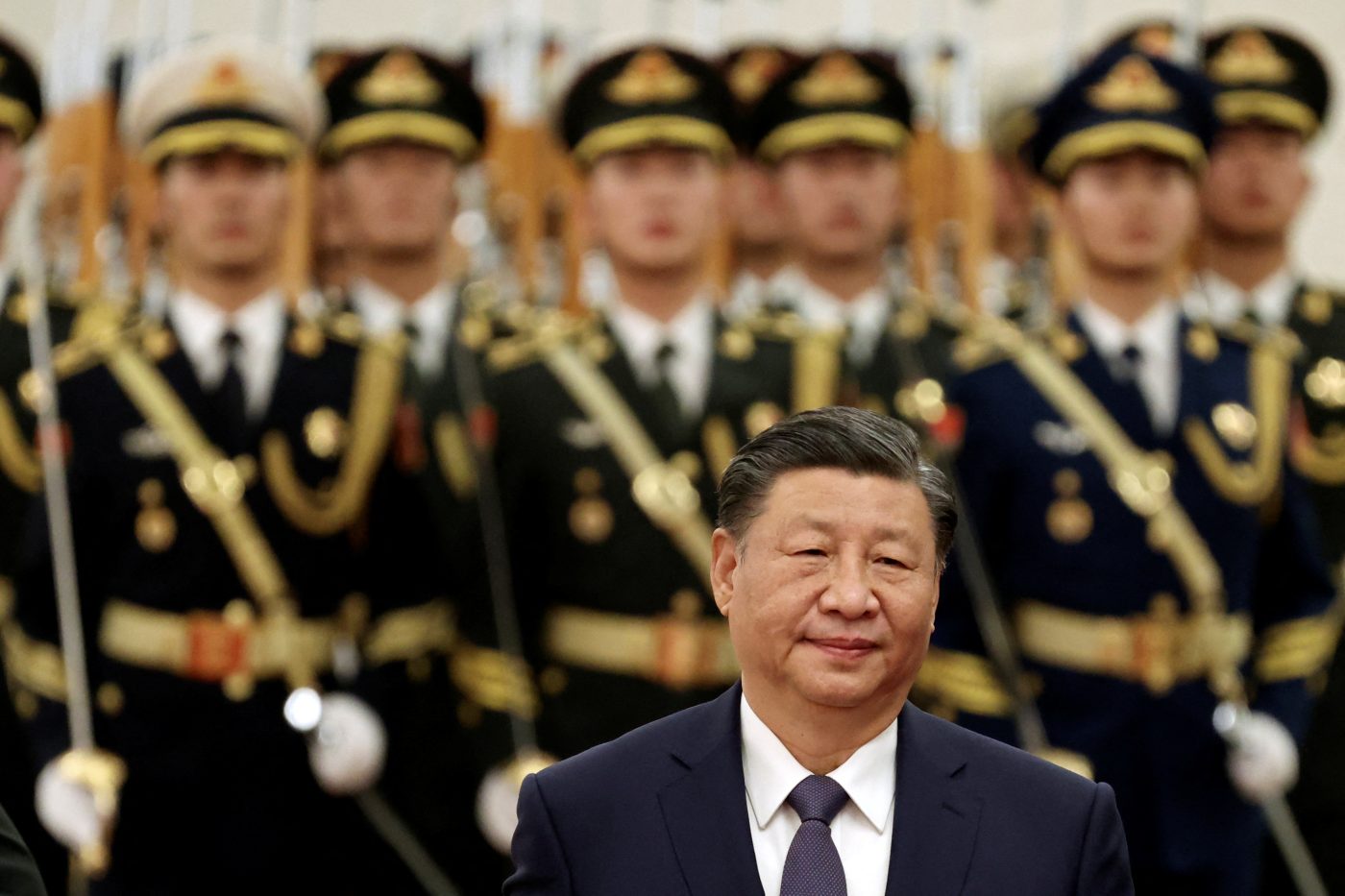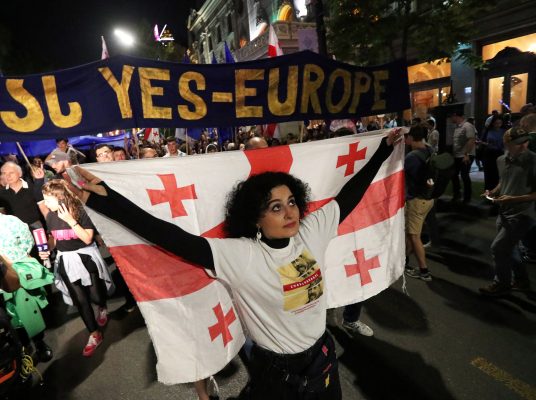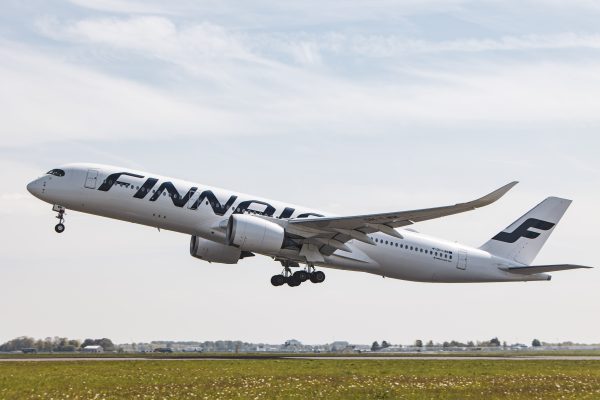China has edged closer to Russia’s President Vladimir Putin through diplomacy, business deals, and arms-length munitions supplies, but cautious heads in Beijing must be wondering if their old friend in the Kremlin is raising the stakes too high and too fast.
So far, the regime’s chief concern has been to justify itself to a public that is preoccupied with a slowing economy and failure to bounce back from years of its Zero-Covid policy.
It has found an easy target in the head of NATO, Jens Stoltenberg, who stirred the state media into its first high-profile response to the proliferation of war talk. His offense was to say on January 31 that the West must recognize Russia as a foe and China as a potential ally of that foe.
China is, Stoltenberg said, a country that “bullies” its neighbors and presents “the most serious long-term challenge” to the Western alliance.
The nationalistic tabloid Global Times explained to its readers that it is all part of a plot.
“Without war, this military organization would lose its raison d’être,” said an un-bylined column published on 4 February. “NATO must have a clear target. If it doesn’t, then it must create one.”
It said Stoltenberg had “consistently associated” China with the war in Ukraine and he had warned that if Russia won, “tomorrow it might be Taiwan.” Worse yet, he had “highly praised” former President Donald Trump for turning NATO against China.
The Global Times has ever been the equal of any partisan television channel in the West when it comes to strong language, but this time its message was unusually serious.
“This is a clear preparation of public opinion to expand the Russia-Ukraine conflict into a world war,” it said.
It was not a reassuring example of how the world is seen from Beijing, not least because the article took time to trace the historic roots of the conspiracy to a speech in 1998 by the late Madeleine Albright, then US Secretary of State, which argued that NATO should move from “collective defense” to protect its interests beyond its borders.
This suggests that Chinese leaders think NATO plans to expand into Asia on the pretext of alliance solidarity in the event of a clash between China and the United States. The Global Times column said this raised the risk of a general war and warned, in allusive Putin-style tones, that “those affected will not be limited to Asia.”
A reality check is often needed with the Global Times so it is worth comparing the Western words with those of President Xi Jinping, who has also talked of waging war.
“We must persist in thinking and handling military issues from a political perspective, dare to fight, be good at fighting, and resolutely defend our national sovereignty, security, and development interests,” Xi told officers of the Eastern Theater Command last year.
The leader spoke of “war readiness” in four speeches at the annual meetings of China’s parliament and its top political advisory body. He also unveiled the latest 7% increase in defense spending, a rate that has remained roughly constant since he took power in 2012.
Rhetorically, Xi has echoed Putin’s epochal language, saying that the world has entered a period of “winds and rain” with “turmoil and change” that make China’s security situation more unstable and uncertain.
It is sometimes forgotten that Xi sees Taiwan much as Putin sees Ukraine, a place sundered from the motherland that begs reunification at almost any price. His defense policy has centered on creating a military capable of doing it.
Often overlooked in headlines about purges and scandals, Xi has patiently overseen a modernization of the armed forces from his earliest days in office.
Scything down a few generals, he restructured the vast, rambling People’s Liberation Army from seven military regions into five theater commands in 2016, led by a new general command. The PLA now has a strategic support force attuned to cyber warfare and a sharper logistical support force to make the machine work better.
The navy has expanded to be the largest in the world with new generation ships and two aircraft carriers, more submarines, and anti-ship missiles designed to execute a concept called anti-access/area denial to shut an enemy out of contested air and sea space.
It is not all plain sailing. There are clearly troubles at the PLA’s Rocket Force, which Xi set up to run the Chinese nuclear deterrent and long-range missiles, since its senior officers have vanished, and he recently purged his defense minister.
Nonetheless, he has forged a weapon that has a precise and limited war-fighting task. This is to gain control of the seas around China, to expel the Americans from Asia, and to reunite Taiwan with the People’s Republic. He need not invade the island to achieve the last of these: a collapse of American willpower would be enough.
The Chinese leader is planning for a victory based on traditional concepts of patience, deception, and decisive force. He is not against war as such. His problem is having the wrong war, at the wrong time, in the wrong place, and on someone else’s timetable.
Veteran foreign correspondent Michael Sheridan is working on a biography of Xi Jinping, ‘The Red Emperor’, to be published by Headline Books, part of the Hachette group, in 2024. He is the author of ‘The Gate to China: A New History of the People’s Republic and Hong Kong’ (2021).
Europe’s Edge is CEPA’s online journal covering critical topics on the foreign policy docket across Europe and North America. All opinions are those of the author and do not necessarily represent the position or views of the institutions they represent or the Center for European Policy Analysis.





